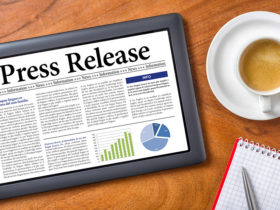ACCOUNTING TODAY: Oct. 16. – Nov. 5
FINANCIAL PLANNING
News and strategies for the personal financial planner
Insurance swap-outs trade old policies for new ones
By Lance Wallach
Do you have any clients who complain that their life insurance was supposed to be paid up by now, but it isn’t? Notices from their insurance companies may even indicate that their suggested premium payment has increased, or that their policies are about to lapse.
Do you have clients whose "investment type" life insurance policy is not performing as projected? Ever have clients cancel their life insurance and get a taxable statement of gain? This can even happen if their policy lapses and they get nothing back (they had a paper gain). This is becoming more common.
There are many reasons why it may be advantageous for the owner of a cash value life insurance policy to swap out the policy for a new one. These reasons include reducing premium payments substantially, the insured’s improved health, a change in the rating of the insurance company, competitive terms of a new policy, increasing the death benefit while making the same payment, increase of the
▬▬▬▬▬▬▬▬▬▬▬▬▬▬▬▬▬▬▬▬▬▬▬▬▬▬▬
When interest rates dropped, premiums had to be paid ▬ in some cases, for twice as long.
▬▬▬▬▬▬▬▬▬▬▬▬▬▬▬▬▬▬▬▬▬▬▬▬▬▬▬
endowment age for the insured, change in the insured’s financial situation, and many more. …
Instead of cashing in a value life insurance policy and purchasing a new one, a policy-owner should use the process of the insurance swapoutsm on the policies. By doing so, a policyowner can roll the exiting cash value insurance policy into a new one without paying taxes on the growth in the old policy’s cash value. In contrast, if the policyowner were to cancel the policy, she would be subject to paying income tax on the cash value in excess of premiums paid into the policy.
An insurance swapoutsm also allows the policyowner to carry over the original basis, which is used to calculate income taxes due upon receiving distributions from the policy’s cash value. Maintaining the original basis can be especially beneficial in the initial contract years of the policy, when the premiums paid may exceed the policy’s cash value.
As an example, a life insurance policy on which the owner has paid $30,000 in premiums has a cash value of $20,000. If the owner were to surrender the policy and buy a new one with the proceeds, the basis in the new policy would be $20,000. With an insurance swapoutsm, however, the basis would remain at $30,000.
Because people are living longer, and due to the insurance marketplace having become more efficient and competitive, the cost of death protection on new policies is usually lower than on older policies. Clients with old policies that don’t reflect updated mortality experience may benefit by swapping them for policies with lower premiums or higher death benefits. One problem with older policies is that they were illustrated at high interest rates that probably would not last indefinitely. These policies might have illustrated being paid up in, say, 11 years, and when interest rates dropped, premiums had to be paid for, in some cases, twice as long.
An insurance swapoutsm is the most efficient way to accomplish various fundamental insurance planning goals. Don’t attempt this on your own, and be wary of your local insurance agent who may say he can help. The result may be a large tax bill. Under Internal Revenue Code Section 1035, insurance can be exchanged for insurance or annuities.
However, because such exchanges are complicated, there are many mistakes that can be made. Any mistake may make the exchange useless or, worse, taxable (in a gain situation). There is also a liability issue. Section 1035 does not require state insurance department replacement forms to be filed. But the filing and analysis of state insurance department replacement forms are part of the insurance swapoutsm procedure. So is the analysis of new acquisition costs, cancellation penalties, new contestability periods, etc. … The swapout should only be recommended if the advantages outweigh the disadvantages.
Lance Wallach, CLU, ChFC, CIMC, speaks and writes about financial planning, retirement plans, and tax reduction strategies. National Society of Accountants Speaker of the Year. For more information and additional articles on these subjects, call 516/938-5007
The information provided herein is not intended as legal, accounting, financial or any other type of advice for any specific individual or other entity. You should contact an appropriate professional for any such advice.










